Confucius Institutes: The growth of China's controversial cultural branch
- Published
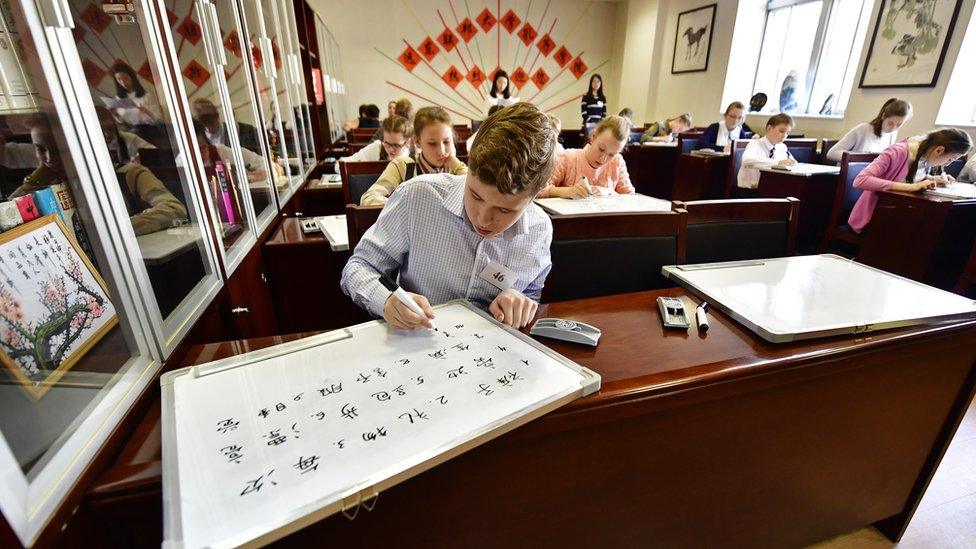
Concerns are growing about Chinese influence on academic campuses around the world
According to China, its Confucius Institute is "a bridge reinforcing friendship" between it and the world.
But to its critics the government-run body - which offers language and cultural programmes overseas - is a way for Beijing to spread propaganda under the guise of teaching, interfere with free speech on campuses and even to spy on students.
In recent weeks, a flurry of universities around the world have shut down programmes operated by the institute. And in Australia, an investigation is even under way into whether agreements between universities and the institute have broken anti-foreign interference laws.
Pushing a 'Confucius revolution'
Open to the general public, Confucius Institutes promote Chinese language but also run classes in culture, from calligraphy and cooking to tai chi. They sponsor educational exchanges and hold public events and lectures.
The first CI opened in 2004 in South Korea, and according to official data there were 548 Confucius Institutes around the world by the end of last year, as well as 1,193 Confucius classrooms based in primary and secondary schools.
Shikha Pandey, a CI teacher at the University of Mumbai in India, tells the BBC they get students from all sorts of backgrounds including the IT industry, business, college students and retirees.
"They only come with a clear motive to learn Chinese language in order to boost their professional skills," she says.
The CIs are joint ventures between the host university or school, a partner university in China, and Hanban, a controversial agency under China's education ministry. It oversees CI operations and provides partial funding, staff and other support.
Backed by significant government funding, China aims to have 1,000 such institutes by 2020 in what it calls a "Confucius revolution" to tap into the growing overseas demand to learn Chinese.
Culture or propaganda?
The Hanban website says all institutes must abide by the CI constitution, external, and not participate in activities that are inconsistent with their "missions".
Ms Pandey, from the CI in Mumbai, said she had not found any direct propaganda in the curriculum or teaching.
The Queensland University of Technology (QUT) told the BBC the CI on its campus was solely educational and that there was "nothing about this straightforward QUT CI's work that could be identified as Chinese propaganda nor does it threaten academic freedom".
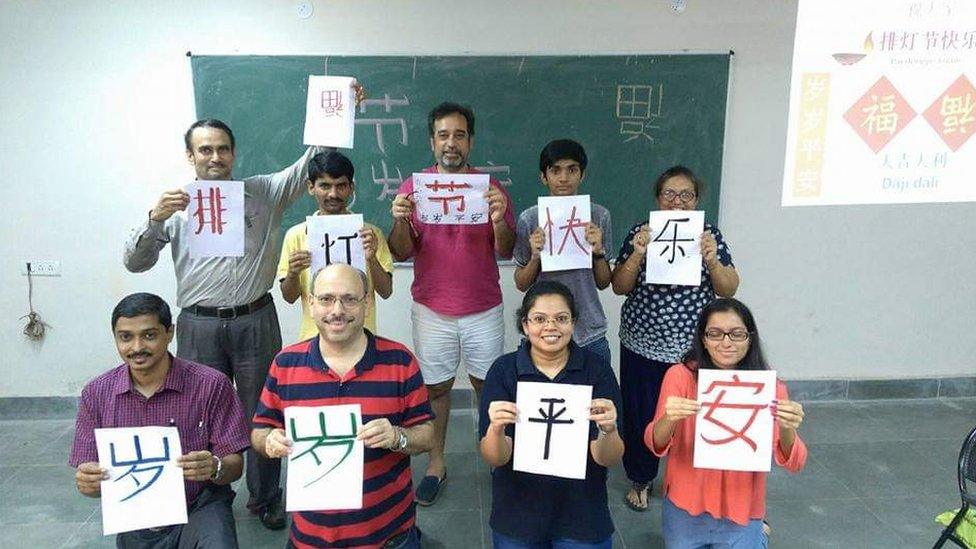
Interest in learning Chinese overseas has grown rapidly in recent years
But though both the CI and Chinese government deny it, critics say the CI rules essentially mean topics like Tibet, Taiwan, and Tiananmen are considered off-limits.
Matt Schrader, a China analyst with the Alliance for Securing Democracy at the German Marshall Fund, asserts that the CIs are indeed "propaganda tools".
"They are platforms for an authoritarian party that's fundamentally hostile to liberal ideas like free speech and free inquiry to propagate a state-approved narrative," he said.
"And since the Communist Party of China doesn't have a free press or rule of law to check its use of power, it's no surprise there have been strong indications that CIs are used for inappropriate covert activities like intelligence gathering, and facilitating military research."
Human Rights Watch said in its 2019 report on China:, external "Confucius Institutes are extensions of the Chinese government that censor certain topics and perspectives in course materials on political grounds, and use hiring practices that take political loyalty into consideration."
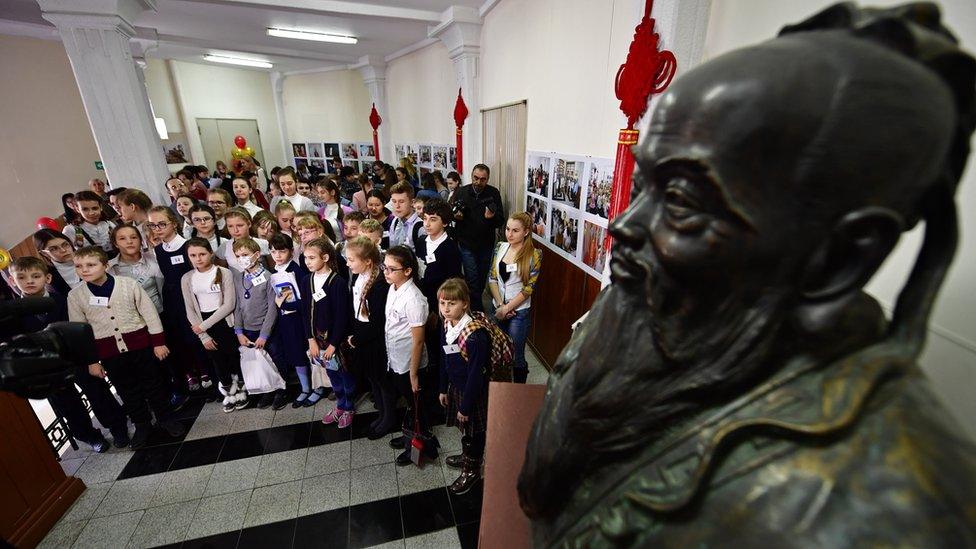
China has criticised the 'politicisation' of its Confucius Institutes
The institutes have been accused of pressuring host universities to silence or censor talks on topics considered controversial by Beijing. For example, at a conference in Portugal in 2014, the head of Hanban, Xu Lin, told her staff to remove references to Taiwan from the conference programme before it was distributed to participants.
In 2018, a keynote speaker at Savannah State University in the US had a reference to Taiwan deleted from her bio, external at the request of the co-director of the university's CI.
China argues that CIs are no different from the cultural centres operated by other countries, such as the British Council and Spain's Cervantes Institute. Chinese officials have in the past, though, admitted, external that the CIs "are an important part of China's overseas propaganda apparatus".
Foreign influence in Australia?
In July, Australian media reported that local universities hosting CIs had signed agreements which gave China decision-making authority over teaching at the facilities.
Then in late August, New South Wales announced it was scrapping programmes run by the CI in its schools altogether.
An education department review in the Australian state said, external that while there was no evidence of "actual political influence", a number of factors "could give rise to the perception that the Confucius Institute is or could be facilitating inappropriate foreign influence in the department".
"Having foreign government appointees based in a government department is one thing, having appointees of a one-party state that exercises censorship in its own country working in a government department in a democratic system is another," the review concluded.
China has said the NSW decision is disrespectful and unfair to local students and urged Australia not to "politicise normal exchange projects".
Is there Chinese influence in Australia?
Protesters at the University of Queensland (UQ) have also demanded the closure of the CI there, particularly after pro-China students clashed with students rallying in support of the Hong Kong protests. , external In response, UQ insisted that its "academic freedom and institutional autonomy are not negotiable, external".
The NSW move comes amid broader concerns about Chinese influence over Australian politics and society.
The Australian government has now formed a task force to curb attempts by foreign governments to meddle in local universities. An investigation is also under way into whether agreements between Australian universities and CIs are in violation of new anti-foreign interference laws.
Growing global concerns
A number of foreign universities - which had embraced the CI with open arms - are rethinking their partnerships amid mounting criticism.
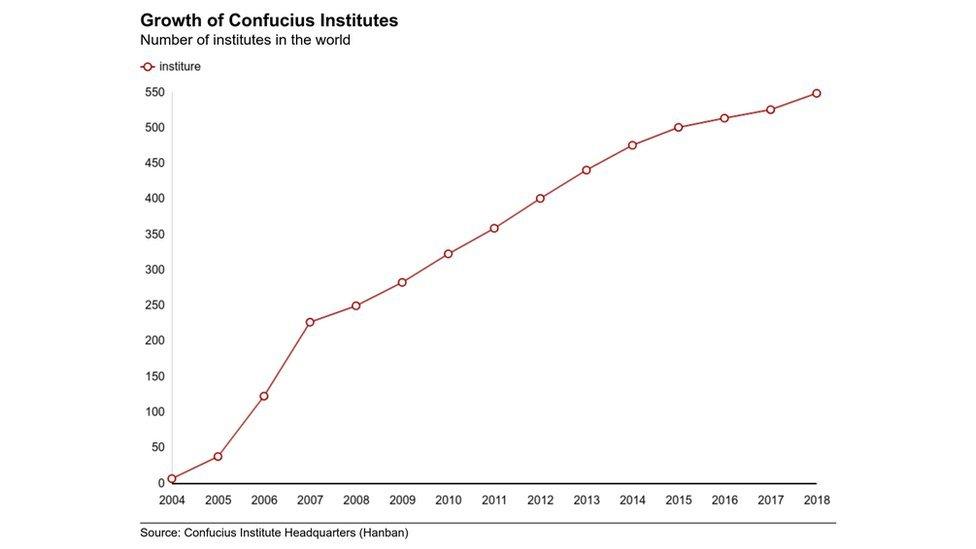
Arizona State and San Diego State are the latest in a string of universities in the US to close down their CIs in recent months. Similar closures have taken place in the UK, France, Sweden, and Denmark. Canada's New Brunswick province has also announced the removal of some Confucius programmes from its public schools.
Meanwhile, the US Defense Department has said it will no longer fund Chinese-language programmes at universities that host CIs.
Alex Joske, an analyst at the Australian Strategic Policy Institute, says the CIs "serve as channels for Beijing to build greater influence over universities as a whole". But completely disengaging with CIs may not be the right approach, he feels.
"Short of shutting down Confucius Institutes, the government should work with universities to ensure they have effective internal mechanisms to resist foreign interference," he says.
"Universities and the government should also seek to increase funding for Chinese-language programmes in order to reduce the appeal of Confucius Institutes and invest in greater expertise on China."
- Published5 September 2017
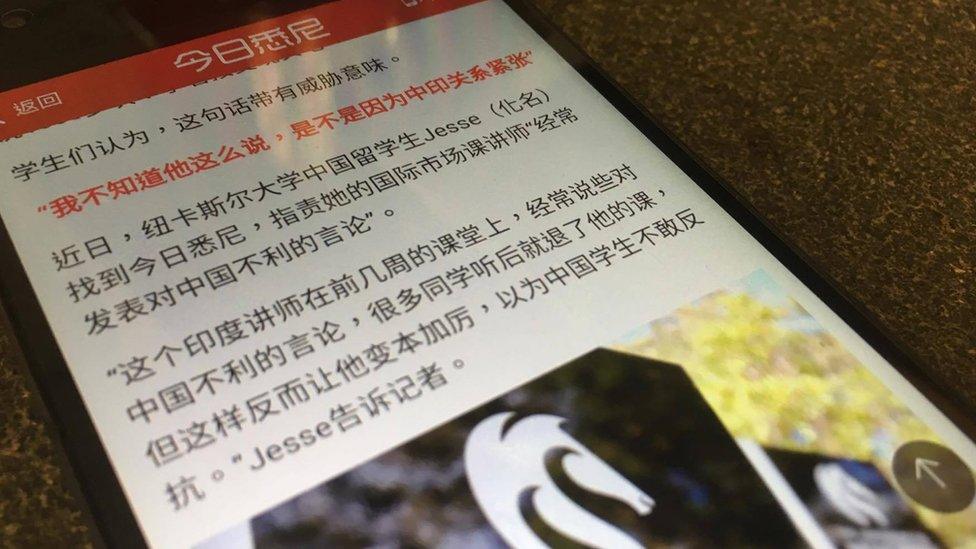
- Published28 August 2019

- Published28 November 2019
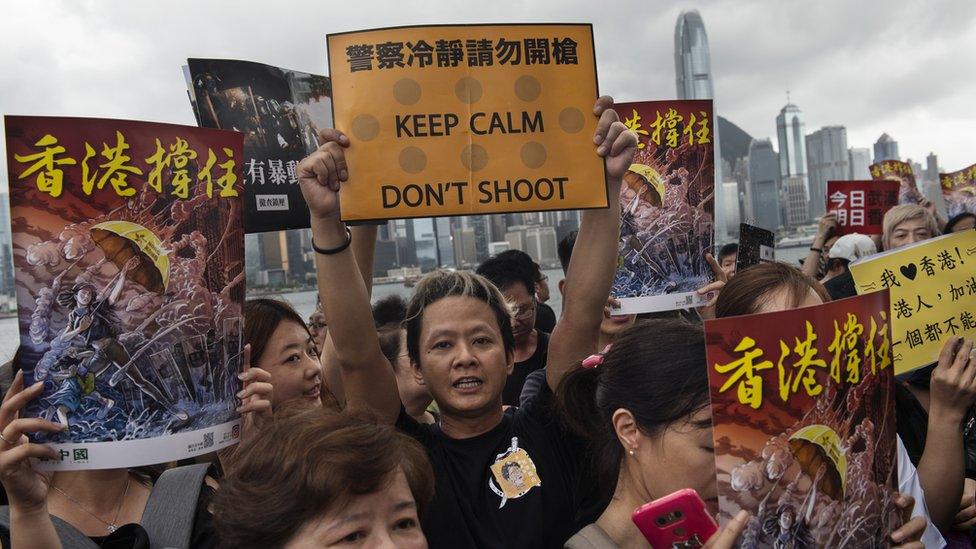
- Published31 July 2019
